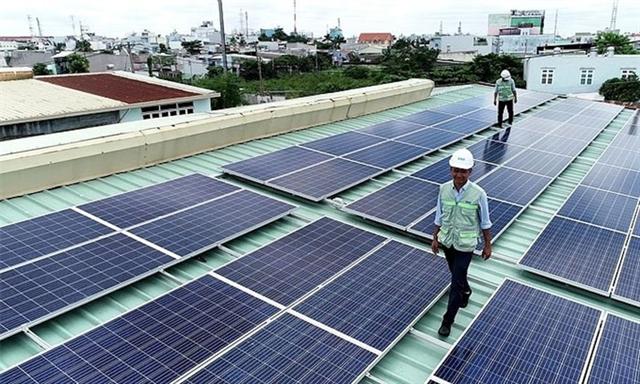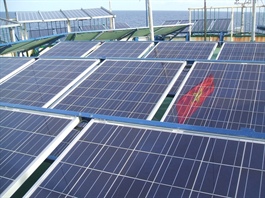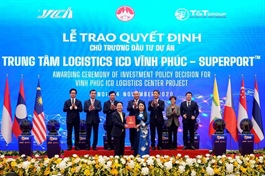Vietnam jumps 5 places in global ranking of renewable energy attractiveness
Vietnam jumps 5 places in global ranking of renewable energy attractiveness
Vietnam has risen five places to 34th out of 40 economies in a global ranking of attractiveness in terms of renewable energy investment.
Workers install solar power panels on a rooftop in Ho Chi Minh City. Photo courtesy of Vietnam Electricity.
|
With an average score of 50.1, the country fared better than Thailand at 38th but poorer than the rest of its neighbors, according to the Renewable Energy Country Attractiveness Index released Wednesday by British multinational professional services company Ernst & Young.
China was second, Japan was eighth, South Korea was 13th, and the Philippines was 29th.
The ranking measured the countries in terms of the performance of their renewables market in relation to investment opportunities based on a number of macro, energy market and technology-specific indicators.
"Beyond the end of 2020, the Vietnamese government is introducing a bid mechanism to ensure competitive pricing," it said.
"The new power development master plan aims to incentivize private investment in new-build renewable projects."
Vietnam scored poorly in terms of concentrating solar power and geothermal energy.
The U.S. topped the rankings following Covid-19 stimulus packages that have supported renewables in the country.
Vietnam aims for 10.7 percent of its total electricity output by 2030 being generated from renewables, mainly solar and wind energy, up from 6 percent previously planned.
They now account for 2.1 percent.
Vietnam currently relies largely on hydropower and thermal power for its electricity needs, but the former is almost fully exploited and oil and gas reserves are running low.
The master plan envisages power production reaching 130,000 MW in 2030 from the current 47,000 MW.




























